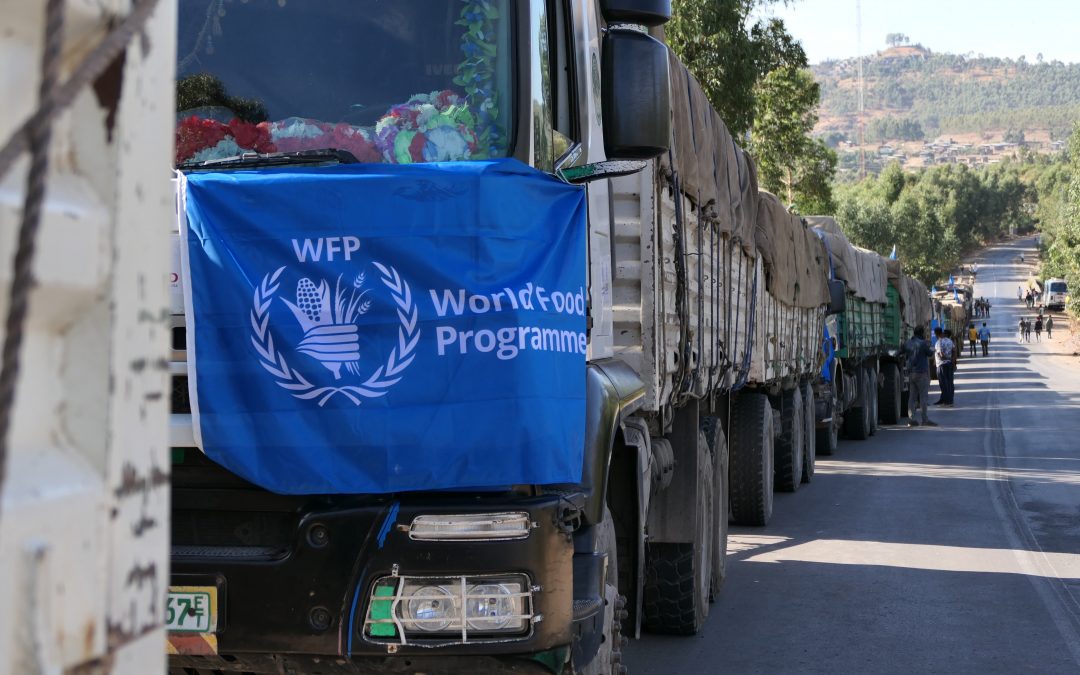Press statement on Humanitarian aid trucks to Tigray – 22 Sept 2021
O
n September 16, 2021, UN Ethiopia, on its official twitter account, expressed concern that aid trucks that had come to Tigray have not returned yet. This statement was issued on the heels of an official statement from, among others, the Ministry of Peace with an identical message, hinting at an apparent coordination. Predictably, various media outlets affiliated with the Abiy Ahmed regime were busy amplifying UN Ethiopia’s statement with the dangerous insinuation that either the trucks were being commandeered for a different purpose or that the trucks were prevented from departing for some other nefarious political purpose. The brevity and ambiguity of the statement left considerable room for interpretation.Before presenting the facts of the case, it is vital that UN Ethiopia’s brief, but loaded statement be unpacked for it fits perfectly with a pattern of irresponsible statements on the part of various UN agencies based in Addis Ababa with regards to developments in the course of the genocidal war on Tigray. While UN Ethiopia finds the failure of aid trucks to return “concerning”, there is absolutely zero evidence that it had made any attempts at finding out why the trucks actually failed to return.
 UN Ethiopia does have local representatives here in Tigray and it seems only logical that those representatives on the ground could and should have been the first line of contact so as to find out the facts surrounding the trucks. Furthermore, a more direct route would have been to contact the drivers themselves. Of course, that would have been a tall feat, given the total communications blackout imposed on the entire Tigray region by the Abiy Ahmed government. In short, before making a loaded statement on twitter, UN Ethiopia could and should have made attempts at discovering the facts of the case. Sadly, UN Ethiopia’s statement is indicative of a reflexive propensity to downplay the humanitarian tragedy unfolding here in Tigray by focusing on marginal issues.
UN Ethiopia does have local representatives here in Tigray and it seems only logical that those representatives on the ground could and should have been the first line of contact so as to find out the facts surrounding the trucks. Furthermore, a more direct route would have been to contact the drivers themselves. Of course, that would have been a tall feat, given the total communications blackout imposed on the entire Tigray region by the Abiy Ahmed government. In short, before making a loaded statement on twitter, UN Ethiopia could and should have made attempts at discovering the facts of the case. Sadly, UN Ethiopia’s statement is indicative of a reflexive propensity to downplay the humanitarian tragedy unfolding here in Tigray by focusing on marginal issues.The fact of the matter is that most of the trucks are stranded here for reasons that have to do with the consequences of the siege on Tigray. That most of the trucks have not returned is intelligible only in the context of the Abiy Ahmed government’s deliberate obstruction of aid delivery by putting in place a series of frustrating roadblocks along the way. In contrast to UN Ethiopia’s insinuation, the following are the most important factors behind the trucks being stranded here in Tigray:
1. Lack of fuel: the truck drivers are provided with fuel enough to last the duration of their one-way trip to Tigray. They are not provided reserve fuel that is customary on such trips. Since the siege imposed on Tigray has created severe fuel shortage, those truckers are also suffering the consequences of this inhumane siege.
2. Incessant harassment: harassing truck drivers going into and out of Tigray has become second nature to federal security and military institutions as well as their local affiliates. Consequently, truck drivers complain of violent inspections at every checkpoint manned by the military and local security officials outside Tigray so much so that they cannot countenance another encounter with these entities. Absent security guarantees—such guarantees are hard to come by, given the source of insecurity are the very institutions entrusted with providing security in the first place—it is understandable that truck drivers are unwilling to leave Tigray.
3. Unexpected and unexplained delays in Afar: related to the incessant harassment mentioned above, truckers are also stranded for weeks and months in the neighbouring Afar region. On account of the lack of adequate security guarantees and inexplicable delays on the way to their destination, truckers are unwilling to venture out of Tigray.
4. Paucity of cash: the suspension of banking services throughout Tigray along with the resulting cash shortage means that truck drivers must move with little to no cash. Understandably, these long-haul truckers are reluctant to return to their origins.
In return, we expect our partners in the humanitarian community, including UN Ethiopia to focus more on the total blockade imposed on Tigray by the Abiy government responsible for the trucks being stranded in Tigray than on what appears to be an attempt to exact a pound of flesh demanded by the very government responsible for the crisis in the first place.
Latest posts by Ethiopia (see all)
- Lideta Sub City Woreda celebrated International Women’s Day - 11th March 2024
- THE AMHARA FANO FREEDOM FIGHTERS - 13th February 2024
- GREAT VICTORY FROM SHOWA GOVERNORATE - 12th February 2024



